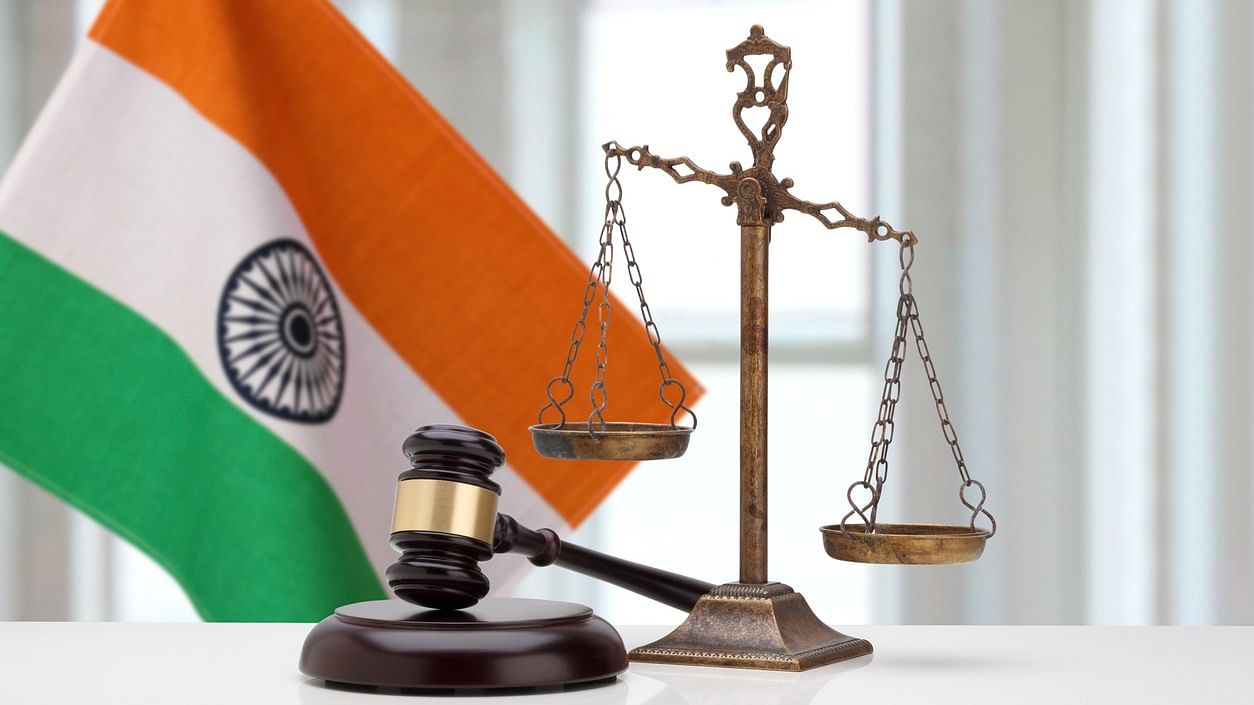
Representative image showing the Indian flag, a gavel, and scales.
Credit: iStock Photo
The Supreme Court’s ruling that Muslim women are entitled to maintenance under Section 125 of the Code of Criminal Procedure (CrPC) is an affirmation of their equal rights under the law, which cannot be taken away by custom, special legislation or other means. Justices B V Nagarathna and Augustine George Masih underlined the principle that maintenance after divorce is not charity but a fundamental right of all married women, irrespective of their religion, and whatever the method of divorce. The ruling was made on an appeal by Mohd Abdul Samad, who challenged a Telangana High Court decision that upheld a family court’s order allowing maintenance for his divorced wife under CrPC Section 125. Samad argued that a divorced Muslim woman should seek maintenance solely under the Muslim Women (Protection of Rights on Divorce) Act, 1986. The court dismissed it, asserting that Section 125 is a secular provision applicable to all women, and Muslim women have the choice to seek maintenance under the CrPC provision, the special law, or both.
The verdict revisits the Shah Bano case, where the apex court ruled in favour of a divorced Muslim woman’s right to maintenance under Section 125. It was believed the subsequent enactment of the 1986 Act limited this right. The court has now clearly said it did not. Judgments have over the years progressively reinforced Muslim women’s right to equal treatment and the applicability of Section 125 for all. The law and practice have evolved to expand the maintenance rights of divorced Muslim women. The Daniel Latifi case of 2001 extended the Muslim woman’s maintenance rights beyond the iddat period until remarriage. The court reiterated this principle in 2009 and again upheld Muslim women’s claim to maintenance under the CrPC provision. In 2019, the Patna High Court ruled that divorced Muslim women can seek maintenance under both Section 125 and the 1986 Act. Despite these rulings, litigation has continued, and it has been argued that the 1986 Act, being a special law, overrides Section 125. The court has finally rejected this, and made it clear that it is for the woman to make the choice of the law she wants to be governed by.
The ruling asserts that the Constitutional right to equality has precedence over all laws and customs, and ensures that Muslim women are not deprived of their entitlements and the right to social and economic security. The ruling and the response to it show how far India has progressed on the road to gender justice in the last few decades. It also shows how to move towards the ideal of a common civil law without politics and confrontation.